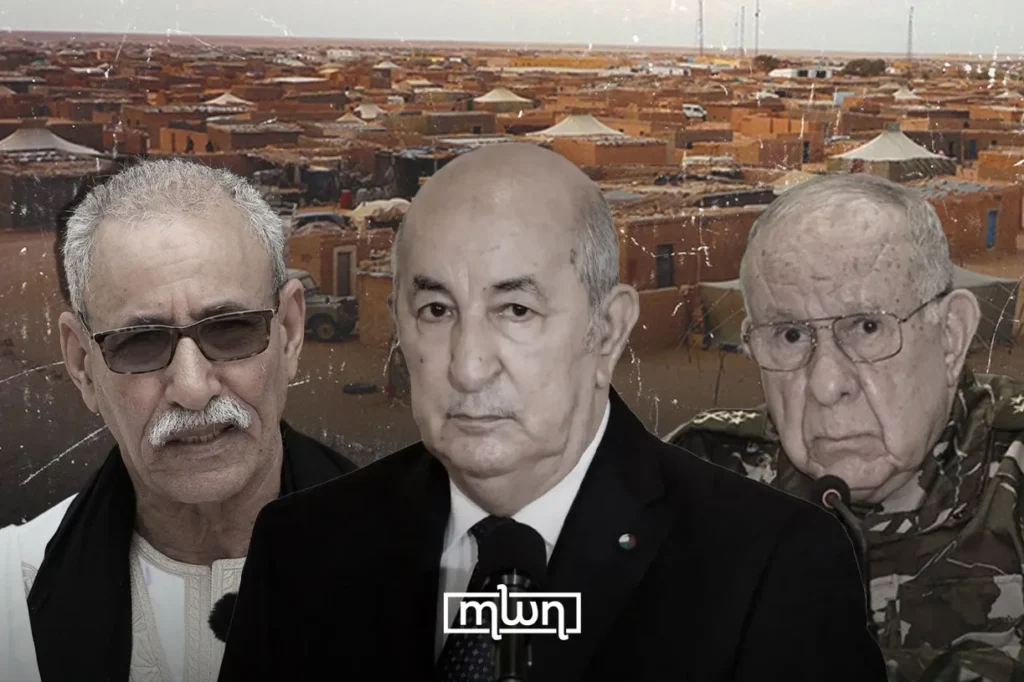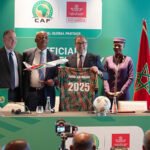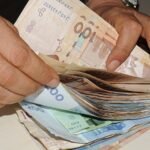Doha – When the Hisbollah was first honored by the United States as a group of terrorists, many in science and media still adhered to a narrative of “resistance”. It took years – and undeniable proof of violence, trade and foreign support – until this myth collapsed.
A similar billing is now underway. American academic institutions and political decision -makers finally tear down the veil, which shielded the polisario front founded in 1973 with the financial blessing and overwhelming strategic sponsorship of Algeria -and did not reveal the organization as a freedom fighter, but as a dangerous terrorist -proxy regional instability.
A comprehensive analysis of the Hudson Institute Breaked The self -portrayal of the Polisario as a liberation movement, which she instead reveals as a paramilitary organization, which acts as a “destabilizing militia”.
In particular, the abundantly documented analysis exposed the separatist group as penetrating weapons smuggling and the indoctrination of the youth, while “with the strategic agendas of Iran, Russia and China”.
The report written by Zineb Riboua and documented on April 18, how the activities of the Polisario “go far beyond the standard for a terrorist name”.
The organization routinely violates the 1991 ceasefire contract from the United Nations, derives humanitarian aid to finance its militant infrastructure and works with named foreign terrorist organizations such as the Hisbollah and the Kurdish Workers’ Party (PKK).
Republican congress member Joe Wilson Has announced Plans to introduce laws that aim to officially call the separatist militia as terrorists.
Wilson said on social media that he would “introduce laws to call the Polisario as terrorists”, while he accused Algeria and Russia of taking advantage of the front to create a strategic support in Africa.
This initiative followed the recent confirmation of Foreign Minister Marco Rubio that Morocco’s autonomy proposal is “the only basis for a fair and permanent solution for the dispute”.
The polisario fulfills the legal criteria for the name of terrorist
According to the analysis of the Hudson Institute, the answer is a clear yes. The Polisario front fulfills all three legal criteria for the name as a foreign terrorist organization according to § 219 of the law on immigration and nationality.
First, it is a foreign organization that deals exclusively outside of the United States and focuses in Algeria in Algeria in the Tindofouf region.
Second, it actively leads terrorist activities in the sense of US law, including attacks that violate ceasefire agreements, violence against civilians and operational coordination with certain terrorist organizations such as Hisbollah. In 2018, Morocco separated the relationship with Iran because of the confirmation of Hisbollah training camps in Tindouf.
Thirdly, his activities directly threaten the US members and undermine the American security interests by weakening Morocco-a important non-Nato-allied and important partner of the fighting terrorism-and enables enemy powers to expand their influence in the strategically vital region of Sahel additives.
The most alarming the Hudson Institute confirmed That the Polisario “receives drones from Iranian Islamic Revolutionary Guard Corps (IRGC) through transfers that are facilitated by the Algerian regime” and “weapons to jihadist uprisings that threaten American armed forces”.
The report expressly underlines Adnan Abu Walid al-Sahrawi, who reports a role in Polisario before becoming the Emir of the Islamic State in the Greater Sahara (ISGS).
Under his leadership, ISGS carried out numerous attacks in the entire Sahel zone, including an ambush from 2017 in Niger, in which four US soldiers were killed.
This trajectory “underlines how militant ecosystems overlap and develop” and shows that “the political infrastructure of the Polisario in Tindouf has long relieved radicalization, trade and mobilization of terrorists”.
The Hudson Institute found that the designation of the Polisario as a terrorist organization would achieve seven critical strategic profits. Boss among them: freezing the group’s assets to reduce smuggling networks, contribute to regional stability and to disrupt the Iranian proxy war skills.
It would also expose Algeria’s destabilization strategy, reduce gun flows to Saheldschemadists, undermine the international propaganda campaigns of the Polisario and address the long -standing abuse of refugee status in the Tindouf camps, while they efficiently project American power and preserve resources.
The camps of the Polisario: militarized enclaves, not refugee ports
The Hudson Institute’s assessment destroys the idea that the camps of the Polisario in Tindouf, Algeria, serve as humanitarian refugee centers. Instead, they act as “militarized enclaves” in which the front “forces the strict control over a population of around 90,000 people”.
Human Rights Watch has documented the lack of elections or free press in these camps as well as the practices of the forced conscription supported by detention. Other disturbing reports are that “some refugees can be enslaved under Polisario control.”
The European anti-statements’ office confirmed these results and documented the systemic theft of humanitarian aid by Polisario “to maintain its militias while the residents suffer”.
An OLAF report from 2015, which covered the period from 2003-2007, found that “the management of the separatist groups has long been involved in the sale of humanitarian aid in the Mauritan and southern Sahara markets for the purchase of weapons”.
The Atlantic Council reports in a similar way that “the distraction of humanitarian aid, which Sahrawis is intended in the camps in Tindouf, Algeria, for Sahrawis, also expresses evidence, in particular with evidence that a large part of help is exposed to corruption and resale in open markets.”
The Tindouf Autonomy Support -Forum attracted the “serious health crisis in the camps” to this widespread smuggling of medical devices and supplies.
Similarly, former Polisario members, including Mustafa Salma, Sidi Mouloud and Hamada El Bihi, have long shown that “more than 80% of the population in the Tindouf Camps from Tuareg people and individuals consist of countries in the Sahara desert, including Mali, Algeria, Libya, Niger and Chad and Chad.”
This explains the persistent rejection of Algeria to allow the camp population to allow a census of the Camp population despite international demands.
An outdated UN mission and Polish crumbling legitimacy
Several American think tanks, the UN Peace Mission in Western Sahara and the claim of the Polisario, the people of Sahrawi, have legitimately represented.
Only last month, Michael Rubin from the American Enterprise Institute characterized Minurser, which was founded in 1991 by the UN Security Council, as a main example of “failed UN peace safety operations”, which “actually preserve conflicts”. Rubin complained that minors “thirty -four years and billions of dollars later carried out a census”.
In a devastating op-ED, published in Washington, Rubin also mocked in the Washington. “Today is the best way to find minurs officials in the Western Sahara, to visit one of Laayoune or Dahklas bars in which minurso vehicles are omnipresent,” he wrote.
In a separate guideline analysis that was published on April 7th, Rubin from the Middle East Forum pushed President Trump demands that the UN Secretary General António Guterres “end the recognition of the Polisario front as a representative of the Sahrawis immediately”.
Rubin questioned the attitude of the international community on the legitimacy of Polisario and claimed that “nobody had ever chosen it in such a position and that nobody gave the Sahrawi a proverb.”
Instead, he pointed to the emerging Sahrawi movement for peace (MSP) as a legitimate alternativeIt not only rejects violence, but also seeks consensus over broad segments of the Sahrawi population. “
The Atlanticrat agree In an analysis that was published on April 9 by Sarah Zaaimi, the local senior Sarah Zaaimi, and referred to minors as “spectator mode” and only maintains a “state of paralysis over the years”.
The Think Tank emphasized how the minurs remained “to the audience, even during the rare skirmishes that were lit up along the sand wall when Morocco decided to regain the strategic Guerguerate crossing in November 2020.”
In a crushing blow that deepens the isolation of Algeria and exposes the weaknesses of his proxy, the personal envoy of the UN Secretary-General, the Staffan de Mistura has given up His earlier partition proposal and recognized that Morocco’s autonomy plan is “the only sustainable path to a permanent and politically realizable solution to the conflict”.
This represents a complete reversal compared to its position in October 2024 and effectively confirms which experienced observers have long recognized: “There is no practical solution for this dispute developed by Algeria outside the parameter of the Moroccan autonomy plan.”





